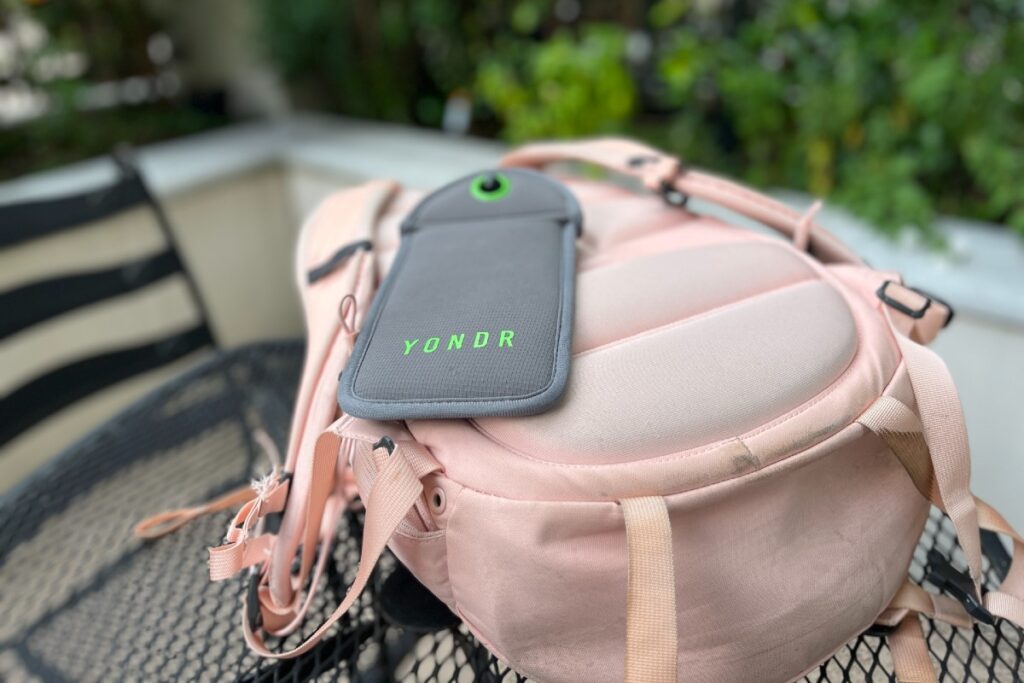
By Andy Brack | Whoo, boy. The high school kids don’t like those new phone pouches at school. It takes them away from the electronic crack of social media.
 In at least three Charleston schools, students must now lock their phones away during instruction time in special magnetized Yondr pouches to keep classrooms phone-free. At lunch if students want to catch up on calls, email or social media, they can unlock the bag and use the phone. Yondr says its pouches are used by 1 million students in 16 countries.
In at least three Charleston schools, students must now lock their phones away during instruction time in special magnetized Yondr pouches to keep classrooms phone-free. At lunch if students want to catch up on calls, email or social media, they can unlock the bag and use the phone. Yondr says its pouches are used by 1 million students in 16 countries.
According to Yondr’s website, “Since it’s a physical pouch system that keeps people from poking at the screen, Yondr doesn’t need to interfere with a phone’s connectivity. Text messages, location services, parental apps, and other vital systems will still be functioning on a phone in a Yondr pouch.”
Teachers and administrators seem to love these new pouches because they greatly reduce electronic distractions. And, they say, that translates in three ways: Students get more instruction time, are better behaved and show improvement in grades.
“Teachers are very happy with the increased levels of engagement,” one principal told reporter Lily Levin at the Charleston City Paper. Another said it was helping teachers win what had been a losing battle in classrooms with distraction caused by electronic devices.
But students, some of whom already have figured out how to game the system by bringing two phones to school, often feel like the Yondr bags are a new kind of phone police that goes overboard. For example, at one school, an Apple Watch recently went off in a classroom, causing a squad of school officials to swoop into the room to search backpacks. In other words, the policy that was supposed to stop classroom distractions created an even bigger one.
Some students complain because they feel left out of the decision about the devices that have become so important – and were used in classrooms in the past. They feel schools are overreacting and don’t trust them – all over devices. And they worried about what would happen if something bad occurred in their private lives or in the classroom and they couldn’t get to their phones to take or make a call.
Some helicopter parents apparently feel the same way, worried by not being able to get in touch with their children. But administrators say parents can contact the school via its regular phone lines. The pouches aren’t a punishment – just a tool to do what is supposed to happen at school. And if necessary in an emergency, the pouches can be broken into if necessary – it’s just not easy.
In fact, Yondr proponents often point out that students in the Dark Ages before the turn of the latest century went to school without cell phones. If something bad happened then, the school would have notified parents – or parents showed up at schools.
“If my kids hear me say I went to school my entire life without a cellphone again, they’re probably gonna throw up,” one high school parent said. “But it’s true,” he added, chuckling.
Yondr pouches are used beyond schools and are found at concert venues, comedy clubs, weddings and even workplaces to create phone-free zones.
On balance, the pluses of these phone-free secure bags seem to outweigh the negatives. In schools, they seem to help focus students on learning, which is the reason they’re spending hours a day in the classroom.
Let’s hope more schools take a proactive approach to reducing the impact of distractions like cell phones so students can focus on what really matters – real learning and critical thinking.
Andy Brack is editor and publisher of Statehouse Report and the Charleston City Paper. Have a comment? Send to: feedback@statehousereport.com.


